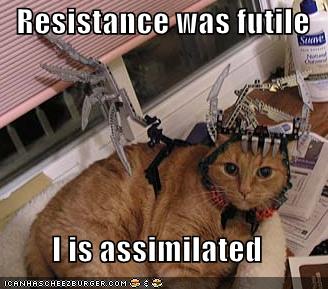 In a single excerpt from a single essay, I’m pretty sure I can recap the several years of deep reflection that took me from conservative Republican to anarcho-capitalist libertarian.
In a single excerpt from a single essay, I’m pretty sure I can recap the several years of deep reflection that took me from conservative Republican to anarcho-capitalist libertarian.
If society can mend, remake, and unmake men at its pleasure, its pleasure may, of course, be humane or homicidal. The difference is important. But, either way, rulers have become owners. Observe how the ‘humane’ attitude to crime could operate. If crimes are diseases, why should diseases be treated differently from crimes? And who but the experts can define disease? One school of psychology regards my religion as a neurosis. If this neurosis ever becomes inconvenient to Government, what is to prevent my being subjected to a compulsory ‘cure’? It may be painful; treatments sometimes are. But it will be no use asking, ‘What have I done to deserve this?’ The Straightener will reply: ‘But, my dear fellow, no one’s blaming you. We no longer believe in retributive justice. We’re healing you.’
This would be no more than an extreme application of the political philosophy implicit in most modern communities. It has stolen on us unawares. Two wars necessitated vast curtailments of liberty, and we have grown, though grumblingly, accustomed to our chains. The increasing complexity and precariousness of our economic life have forced Government to take over many spheres of activity once left to choice or chance. Our intellectuals have surrendered first to the slave-philosophy of Hegel, then to Marx, finally to the linguistic analysts.
As a result, classical political theory, with its Stoical, Christian, and juristic key-conceptions (natural law, the value of the individual, the rights of man), has died. The modern State exists not to protect our rights but to do us good or make us good — anyway, to do something to us or to make us something. Hence the new name ‘leaders’ for those who were once ‘rulers’. We are less their subjects than their wards, pupils, or domestic animals. There is nothing left of which we can say to them, ‘Mind your own business.’ Our whole lives are their business.
C. S. Lewis
Willing Slaves of the Welfare State
(Whole essay, very much worth reading, is here.)
My conversion went like this:
- I’m fighting for the government to control how people act.
- The people I support won’t always be in control.
- If the government has the power to control how people act and I don’t agree with the people in charge, I’m at risk to have myself and my behavior controlled in exactly the same way I’m advocating.
- The only way to avoid tyranny is to take away the power to control behavior from the state.
In other words, I’m not a libertarian because I hope for libertine squalor or because I hope to hasten the moral decay of society (whatever that means). I’m a libertarian (and border on anarcho-capitalist) because I dread tyranny.
And lest there be any misunderstanding, just because you agree with the outcome doesn’t make your particular brand of government-run behavioral control any less tyrannical:
Of all tyrannies a tyranny sincerely exercised for the good of its victim may be the most oppressive. It may be better to live under robber barons than under omnipotent moral busybodies. The robber baron’s cruelty may sometimes sleep, his cupidity may at some point be satiated, but those who torment us for our own good will torment us without end for they do so with the approval of their own conscience.
C. S. Lewis
God in the Dock
Listen, people: you can’t pass laws that make people better or fix society’s ills. All you can do is make everyone less free in the process. Make no mistake: government-run healthcare is a tyranny no less sincerely executed for the good of its victim than the moral do-gooding of the religious right. In the end, we’re left only with less freedom and heavier chains.
I wish I could shout this from the rooftops.